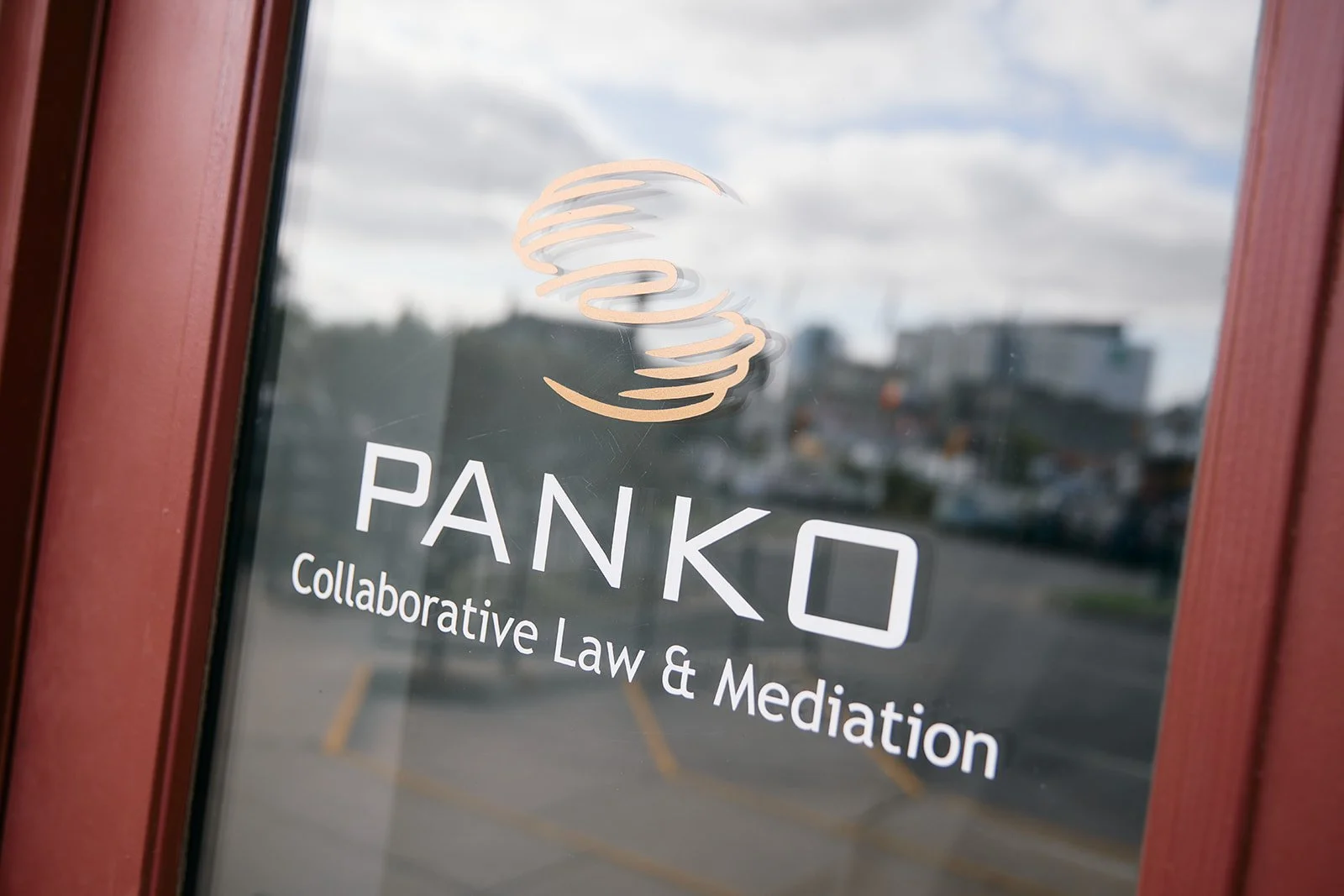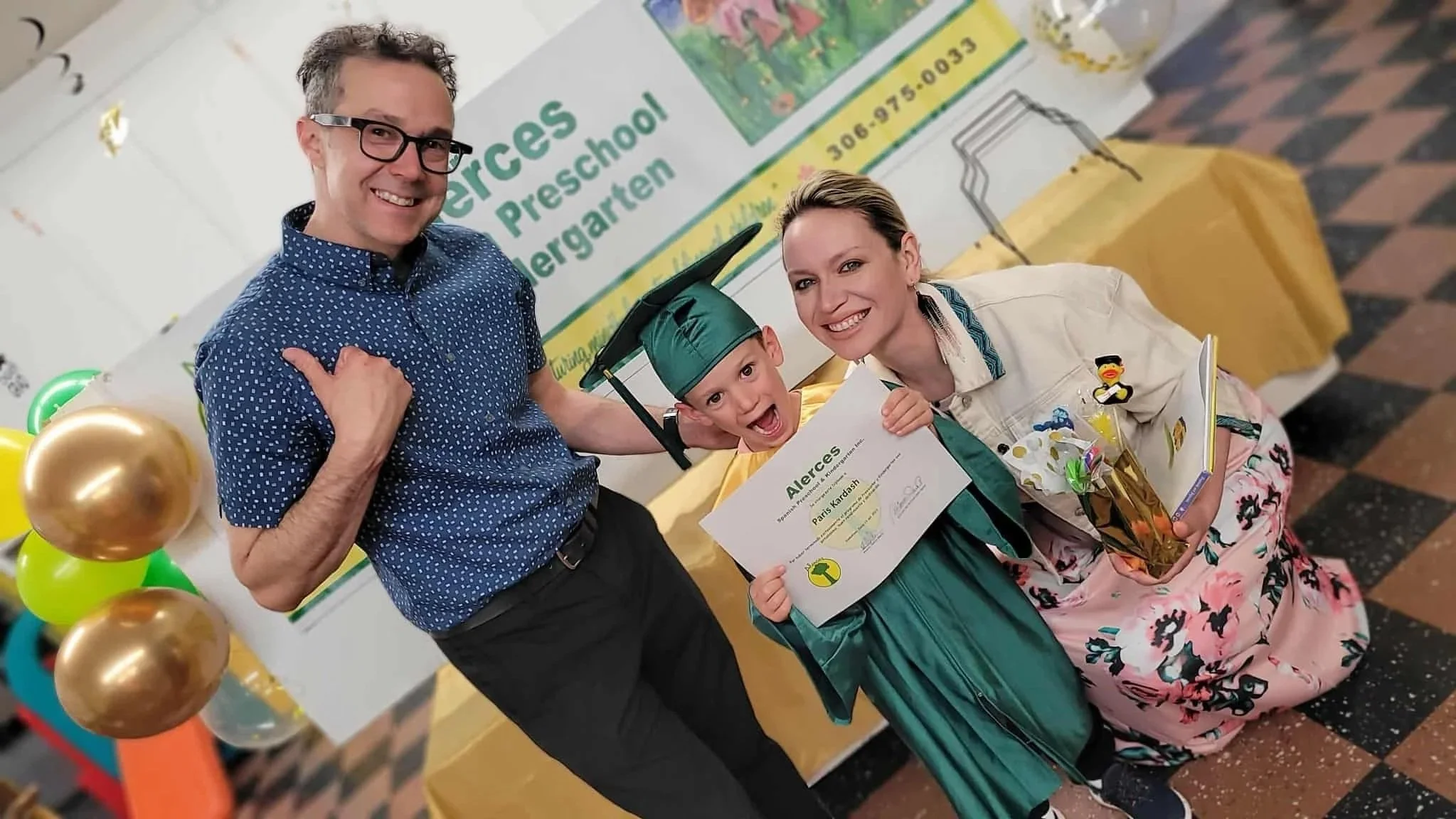A kinder approach to family law with Panko Collaborative Law and Mediation
Did you know the legal system in Canada (including here in Saskatchewan) is literally called the Adversarial Legal System? It’s designed to pit people against each other, even in situations as emotional and personal as ending a marriage. The name alone sounds like one of the most heartbreaking dynamics for a child to watch their parents step into. After you read this piece featuring Panko Collaborative Law and Mediation, I’d love to know what you think. Does the collaborative model make more sense? Maybe it's something you wish you’d known about sooner.
It was over lunch that my friend, Charmaine Panko, a collaborative family lawyer in Saskatoon, asked me to help share her firm’s mission to move families away from that adversarial model toward a collaborative one. My husband did jokingly ask if there was something I wanted to tell him (don’t worry, we’re good!), but I didn't hesitate in saying yes to a partnership. I saw an opportunity to potentially reach a reader who could benefit from reaching out to the Panko team, whether they’re ending a relationship, starting one, or trying to navigate it in a healthier way. And, on a personal note, I adore Charmaine! I hope you'll enjoy the read & be inspired to share your comments.
This post is paid but all opinions are mine! Photos are by Nicole Romanoff
An Interview with Charmaine Panko, Collaborative Lawyer and Mediator
Me: What first made you realize that the traditional, adversarial legal system wasn’t working for families and inspired you to take a different approach?
Charmaine: When one of our children was in grade 12 at Walter Murray Collegiate, which as you know is a large school, each of the students were allowed to invite only two people to their graduation banquet and dance. Our child had a friend whose parents were going through a high conflict divorce and could not imagine inviting both parents to the banquet, even though it was being held at TCU place and the parents could've sat on opposite sides of the room (which is large!). She also couldn't imagine inviting one of them and not the other. So she didn't invite either parent. And she instead experienced this once in a lifetime event by herself at our table. I knew in that moment that there had to be a better way.
Me: For people who’ve never heard of collaborative law, how would you describe it in simple, human terms?
Charmaine: Collaborative law is a formalized process where all parties, their legal counsel, plus any other supporting professionals, sign a contract wherein they commit to reaching a settlement outside of court. Everyone commits to full transparency, to not take advantage of any mistakes one of us might make, and to work towards a final resolution that focuses on the best interests of their children.
Me: You’ve seen firsthand what happens when families choose collaboration over conflict. What difference does it make, especially for children watching their parents go through a change in relationship?
Charmaine: When parents engage in collaboration it models for their children that conflict isn't worked through by declaring a winner and a loser but instead, by sharing the things that are important to us and by seeking to understand what is important to the person we are in conflict with. And for the parents, it empowers them to think creatively and to design a pathway forward that will be best for the family. Because fundamentally when parents choose to live separate and apart and no longer maintain a spousal relationship, they are still a family. It is just in a different configuration. A spousal relationship may end, but once a parent, always a parent. And who knows your children better than you as a parent? Surely not a complete stranger. Why would you want a complete stranger to make the decisions and be the author of this next chapter of your life?



Me: Several of your eleven children now work alongside you at Panko Collaborative Law. What’s it like to build a family business around helping other families heal?
Charmaine: Though a great deal of the work that we do is helping families during separation and divorce there is a fundamental skill set that we lean into that helps in all relationships, working through difficult moments and where there is conflict. The principles of nonviolent communication and interest-based negotiations are skills that my children have not only learned through their involvement with the family business but are also skills they model and teach to others. (Not to mention how helpful it has been in our own family relationships and dynamics. Like everyone, we also see things differently from each other from time to time and have our own interpersonal conflict but at the end of the day we share the vision of transforming how families experience separation and divorce.)
Me: I know your collaborative law ethos extends beyond ending personal relationships, sorry to focus on just the one piece! Can you touch on a few other points at which someone might find your service of use?
Charmaine: All our services centre on the family and the systems a family interacts with. Conflict shows up in all of those systems. For example, somebody might be having difficulty at their employment. There could be issues at school that need resolution. We work with families for planning (and dealing with) end-of-life matters. When a couple decides to enter into a long-term spousal relationship, they can work with us to create a relationship agreement (also known as a prenup or cohabitation agreement!). We also help with adoptions, guardianships, immigration and real estate matters.
Me: If someone reading this is facing a huge life change, what’s one small mindset shift or piece of advice you’d want them to hear before they wade into legal waters?
Charmaine: If someone is reading this and facing a life change, what I would hope they could hear and understand is: they can be the author of the next chapter of their life. You do not have to hand the pen over to someone else to write it for you.
A Kinder Way Forward in Family Law
Thanks to Charmaine and the Panko Collaborative Law & Mediation team in Saskatoon for partnering with me on this piece. I’m truly in awe of her as a mom, lawyer, and human… and I hope this post reaches someone who needs to know there’s a kinder way forward.
If the idea of collaborative law in Saskatchewan or family mediation in Saskatoon resonates with you, please share this post! I’d love to help shift the system from “versus” to “working with.”
Maygen









